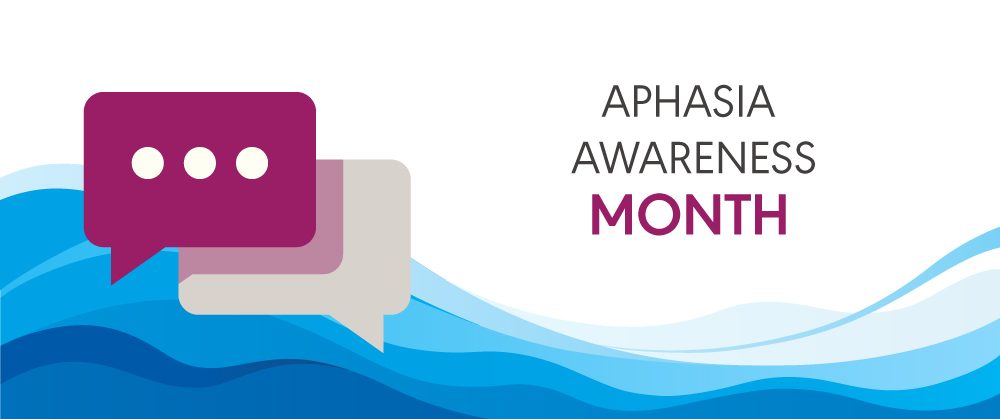Aphasia is a neurogenic language disorder usually caused by injury to the brain. The disorder can affect both spoken and written language, resulting in damage to language expression and/or comprehension. Every year, there are an estimated 180,000 new aphasia cases, with a great deal of these occurring after stroke.
The month of June gives us another crucial opportunity to discuss aphasia as we recognize Aphasia Awareness Month. The articles below highlight new articles in the ASHA Journals that look at a variety of aspects of aphasia.
The Latest in Aphasia Research
Prognostication in Poststroke Aphasia: Perspectives of Significant Others of People With Aphasia on Receiving Information About Recovery: When consulting with aphasia patients on what to expect after a stroke, speech-language pathologists (SLPs) should consider the needs of significant others such as caregivers who may need care themselves. This article found five key themes in interviews with the significant others of people with aphasia.
The Reliability of Telepractice Administration of the Western Aphasia Battery–Revised in Persons With Primary Progressive Aphasia: Telepractice can benefit patients and clinicians through ease of use and can help promote health equity by expanding care services. In this article, the authors confirmed that patients showed similar scores on a popular measure of aphasia severity that was administered to them both in person and via telehealth, providing evidence that administering the test online is reliable.
Effects of Positive and Negative Emotions on Picture Naming for People With Mild-to-Moderate Aphasia: A Preliminary Investigation: This study revealed that in a naming task with negative stimuli, older adults and people with aphasia took longer to respond—and responded less accurately. Clinicians and caregivers should be aware of the effect that negative emotions or stimuli can play on word retrieval for people with aphasia.
Toward Empowering Conversational Agency in Aphasia: Understanding Mechanisms of Topic Initiation in People With and Without Aphasia: Specific, teachable behaviors may improve topic initiation for people with aphasia, resulting in less abrupt topic shifting and allowing people with aphasia to talk about subjects that interest them. Learn what you can do to help people with aphasia participate in more meaningful and satisfying conversations.
Aphasia in Underrepresented Populations
Representation in Aphasia Research: An Examination of U.S. Treatment Studies Published Between 2009 and 2019: Aphasia has not been shown to affect people differently based on gender or race. In this study, the authors looked at how age, gender, and race/ethnicity were reported in aphasia research, finding that researchers rarely reported race/ethnicity and that researchers included women in studies less frequently than men.
Get in Sync: Active Ingredients and Patient Profiles in Scripted-Sentence Learning in Spanish Speakers With Aphasia: Script training is a well-established treatment for aphasia, but its evidence comes primarily from monolingual English speakers with aphasia. In this article, the authors adapted a scripted-sentence learning protocol for monolingual Spanish speakers, showing promising results—particularly for people with severe aphasia.
Recognizing Aphasia Awareness Month
Thank you for taking the time to recognize Aphasia Awareness Month along with the ASHA Journals! These articles showcase the work that researchers are doing every day to help people with aphasia and offer new strategies that clinicians can implement in their practice.
The featured articles are just a small sample of what’s available on the ASHA Journals, so be sure to check out our topic collection for more on aphasia. Don’t forget that June is also Dysphagia Awareness Month, check out our post from last week for more on swallowing, and stay tuned to Context for announcements, research summaries, and more!









